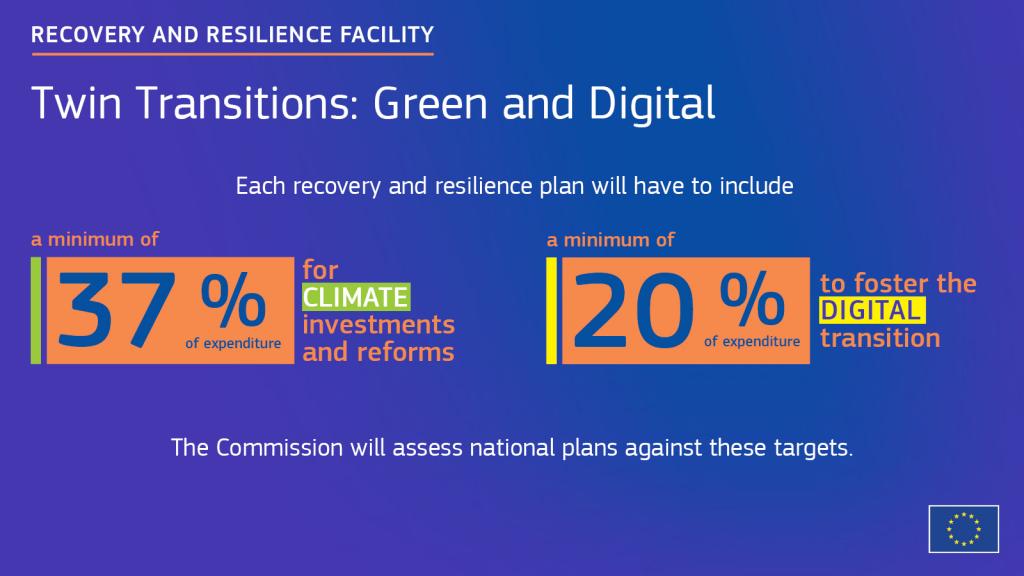On 27 May 2020 and in response to the unprecedented crisis caused by the coronavirus, the European Commission proposed the temporary recovery instrument NextGenerationEU, as well as targeted reinforcements to the long-term EU budget for 2021-2027. At the heart of NextGenerationEU, the Recovery and Resilience Facility will make available €723.8 billion to EU Member States (both loans and grants) to support reforms and investments of EU countries.
The Digital Skills and Jobs Platform offers an analysis of National Recovery and Resilience Plans and the main actions of EU Member States in digital skills in a dedicated section.
Getting it right: making sure EU Member States are fit for the digital age
The Recovery and Resilience Facility entered into force on 19 February 2021. Closely aligned with the Commission’s priorities for the upcoming years, it will finance reforms and investments in EU countries until 2026. Each EU Member State develops a national recovery and resilience plan, describing the reforms and public investment projects they plan to implement with the support of the RRF. Access to funding is contingent on ticking specific boxes: such as dedicating at least 37% of the plan’s budget to climate investments and ensuring at least 20% of investments support digital objectives (including digital skills).

EU countries should have officially submitted their recovery and resilience plans ‘as a rule’ by 30 April 2021, but this is not a ‘real’ deadline. The date serves as an orientation, and the Commission has indicated that it will welcome EU Member States’ plans until mid-2022. Once submitted, each plan is then assessed based on several criteria and translated into legally binding acts, before it goes to the European Council. This has to happen within 2 months of the submission date – and the Council has another 4 weeks to adopt – and endorse – the Commission’s proposal. The Council’s approval paves the way for the disbursement of 13% in pre-financing.


